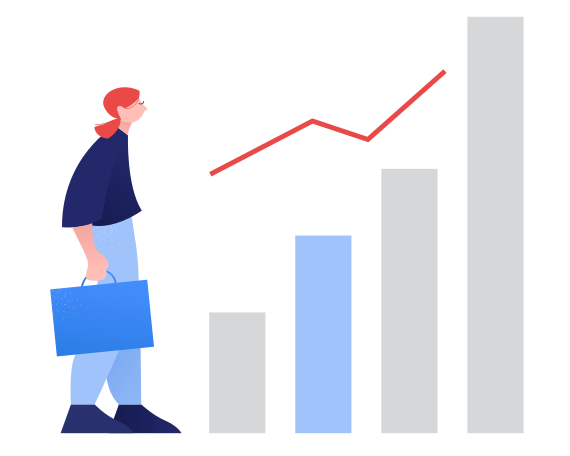WordPress has officially announced the formation of a dedicated AI Team, signaling a major shift after years of trailing behind in the adoption of artificial intelligence. This move represents a strategic effort to bring advanced AI capabilities to the WordPress ecosystem and marks the platform’s commitment to evolving with the rapidly changing landscape of web technology.
For years, WordPress, the world’s most popular content management system, has remained surprisingly quiet on the topic of artificial intelligence. While competitors like Wix, Shopify, and even open-source platforms such as Drupal rapidly adopted AI-powered features, WordPress largely stayed on the sidelines—until now. In a major shift, WordPress has officially announced the formation of a dedicated AI Team to oversee the development and integration of AI into its core ecosystem. This move marks a pivotal moment in the platform’s evolution. As AI reshapes the future of web development, WordPress’s entry into the field is not just timely, it’s essential for staying relevant.
1. Background: WordPress’s Slow Journey Toward AI Adoption
WordPress powers over 43% of all websites globally, solidifying its status as the dominant force in the CMS landscape. Its success is largely attributed to its open-source nature, vast plugin ecosystem, and a development model that emphasizes community input and long-term stability. However, this community-driven, cautious approach has also made WordPress slower to adopt emerging technologies—particularly artificial intelligence. While platforms like Wix use AI for automated design and content creation, Shopify offers AI-powered product recommendations, and Drupal integrates AI modules for personalization, WordPress has been notably absent from the AI conversation. This delay has cost WordPress more than just innovation points—it has allowed competitors to redefine user expectations, especially for marketers, creators, and developers seeking smarter, automated solutions. The lack of native AI tools left WordPress looking outdated in a rapidly evolving digital environment. Now, as AI becomes foundational to the web experience, WordPress must catch up to remain competitive.
2. WordPress Forms Its First-Ever AI Team
In a landmark announcement, WordPress has officially formed its first-ever AI Team, signaling a significant shift in its development strategy. Modeled after the successful Performance Team, this new AI Team will be tasked with coordinating the research, development, and integration of artificial intelligence capabilities into the WordPress ecosystem. The team aims to bring structure and strategic direction to AI efforts, ensuring that innovations are introduced in a way that aligns with WordPress’s core philosophy of openness, collaboration, and user empowerment.
A key part of the team’s approach involves the use of canonical plugins, official plugins developed and maintained by the WordPress core team. These plugins serve as experimental environments for testing new AI features before they’re considered for full integration into the core platform. This method allows for rapid development, real-world user testing, and iterative improvement based on community feedback.
The AI Team’s mission is not just to implement AI for the sake of novelty, but to identify and prioritize areas where AI can meaningfully enhance the WordPress experience. Whether it’s through smarter content recommendations, automated design elements, or advanced analytics, this initiative marks a pivotal step toward making WordPress more intelligent, responsive, and competitive in the age of AI-driven web development.
3. Meet The Minds Behind The Mission: Key Members Of The AI Team
At the forefront of WordPress’s AI initiative are two influential figures from Google: Felix Arntz and Pascal Birchler. Felix Arntz, a Senior Software Engineer at Google, has long been a key contributor to the WordPress core and its plugin ecosystem. He previously served as a lead on the Performance Team, where he played a pivotal role in improving site speed and overall efficiency across the platform. Now, he brings his expertise to guide WordPress’s AI strategy and technical implementation.
Joining him is Pascal Birchler, a Developer Relations Engineer at Google and a respected WordPress core committer. Birchler recently made headlines for leading the integration of the Model Context Protocol (MCP) with WordPress via WP-CLI, showcasing his deep understanding of both developer tooling and AI integration.
The involvement of two seasoned Google engineers underscores a powerful synergy between big tech and open-source innovation. It reflects growing industry recognition that collaborative, transparent development can accelerate meaningful AI adoption in platforms as large and influential as WordPress.
4. Canonical Plugins: A New Model For AI Integration
Canonical plugins are emerging as a strategic bridge between innovation and stability in WordPress development—especially in the context of AI integration. These plugins, developed and maintained by official WordPress contributors, serve as experimental yet reliable tools that allow the community to test new features without immediately altering the WordPress core. This approach promotes agile development, enabling rapid iteration and user feedback while minimizing risk.
For AI, canonical plugins offer the perfect environment to pilot transformative features before they become part of the platform’s foundation. Some likely candidates for early testing include AI-driven content suggestions that help users generate or improve posts, automated SEO enhancements to optimize metadata and structure, and intelligent media tools that can resize, tag, or even translate images and videos automatically.
By leveraging canonical plugins, WordPress ensures that AI innovations are tested transparently and refined collaboratively—paving the way for smarter, user-friendly solutions that align with real-world needs and expectations.
5. What AI Could Mean For WordPress Users
The integration of AI into WordPress holds transformative potential for all types of users, from bloggers and developers to digital marketers and agencies. For non-technical users, AI can dramatically simplify content creation. Tools like AI-generated content blocks, summaries, headlines, and tags will help streamline the publishing process, allowing users to focus more on creativity and storytelling rather than formatting or optimization. AI can also enhance website performance and SEO by automatically suggesting improvements or making real-time adjustments based on user behavior and search trends.
For developers, AI can serve as a powerful assistant. Intelligent code suggestions, auto-documentation features, and smarter debugging tools can significantly speed up theme and plugin development. Developers will be able to build more efficiently, catch errors faster, and focus on innovation rather than routine tasks.
Marketers and agencies stand to benefit from AI-driven insights and automation. Predictive analytics can help forecast site performance, identify content gaps, and guide strategy. AI tools for personalization and audience segmentation can enable more targeted campaigns, improved user experiences, and higher engagement rates.
By integrating these AI-driven capabilities, WordPress can evolve into a smarter, more intuitive platform that empowers every user—regardless of their technical expertise or business goals.
6. Learning From Competitors: What WordPress Is Trying To Catch Up With
While WordPress is just beginning its journey into AI integration, its competitors have already established a strong foothold. Wix, for instance, introduced Wix ADI (Artificial Design Intelligence) years ago, allowing users to automatically generate websites by answering a few simple questions. In addition, Wix has built-in AI tools for SEO optimization and copywriting, helping users create high-performing content with minimal effort.
Shopify has also embraced AI, especially in the eCommerce space. Its platform offers smart product recommendations and AI-based marketing automation, enabling store owners to boost conversions and run more targeted campaigns with ease.
Drupal, another open-source CMS, has made strides by integrating AI modules that support personalization and dynamic content delivery straight out of the box.
While WordPress is undeniably late to the AI game, it still holds a significant advantage through its vast global community, plugin ecosystem, and extensibility. With the right strategy and collaborative development, WordPress has the potential not only to catch up—but to lead the next wave of intelligent, open-source web experiences.
7. Challenges Ahead For The WordPress AI Team
Despite the excitement, the WordPress AI Team faces several significant challenges. Being an open-source platform, WordPress must strike a careful balance between innovation, security, and long-term stability. Rapid AI integration could raise concerns about vulnerabilities or untested features disrupting core functionality. Additionally, some in the community may be skeptical—worried about a bloated core, data privacy, and the ethical implications of AI. To succeed, the team must implement transparent governance, clear communication, and structured feedback mechanisms. Compatibility is another major hurdle, as any new AI feature must seamlessly integrate with thousands of existing themes and plugins without causing conflicts or performance issues.
8. The Future Of WordPress In An AI-First Web
- Prediction: AI to become a default part of CMS experiences.
- Role of WordPress in democratizing AI-powered publishing.
- Potential to lead again if executed properly.






